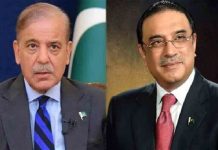MOSCOW: Four Russian regional governors resigned on Tuesday as the country braces for the impact of economic sanctions.
The heads of the Tomsk, Saratov, Kirov and Mari El regions announced their immediate departures from office, while the head of Ryazan region said he would not run for another term. Elections are scheduled to take place in all five regions in September.
Though Russian regional governors are elected, they are politically subordinate to the Kremlin. Several of the outgoing governors represent regions where the ruling bloc United Russia took weak vote shares in parliamentary elections last year.
Unpopular governors are regularly removed from office, often submitting their resignations in clusters in the spring months.
Ilya Grashchenkov, head of the Centre for the Development of Regional Politics think tank in Moscow, said the Kremlin was removing weak governors amid a worsening economic outlook for the country, driven by Western sanctions. Grashchenkov said: “There’s a need to restructure the economy, especially in those regions where Western economic influence had been significant. These governors need to be replaced by younger alternatives.”
Russia is facing the deepest economic contraction in nearly three decades as pressure from sanctions imposed by the U.S. and its allies mounts, according to an internal forecast by the Finance Ministry. Gross domestic product is likely to shrink as much as 12 per cent this year, deeper than the eight per cent decline expected by the Economy Ministry, according to people familiar with the estimates who spoke on condition of anonymity to discuss internal deliberations. The government hasn’t released a public forecast since the invasion of Ukraine.
The Finance Ministry issued a statement Tuesday saying the report of the forecast was inaccurate. “Preparation of official macroeconomic forecasts does not fall under the Finance Ministry’s authority,” it said, noting that it “expects that the measures taken by the government and the Bank of Russia will make it possible to ease to a large extent the negative consequences of sanctions and ensure stable economic development.”
A 12 per cent contraction would put the economic pain on par with the turmoil seen in the early 1990s, when Russia’s Soviet-era economy lurched toward capitalism with a contraction not seen since wartime.
“The main negatives are the oil embargo, the EU giving up Russian gas, along with more departures among foreign companies,” said Natalia Lavrova, chief economist at BCS Financial Group in Moscow. “All that will probably expand gradually, with a lot of negative carrying over in to 2023.”
Excluding those factors and based only on current sanctions, she forecasts a contraction of 10.8 per cent in 2022 and about 5 per cent in 2023.
–Agencies




